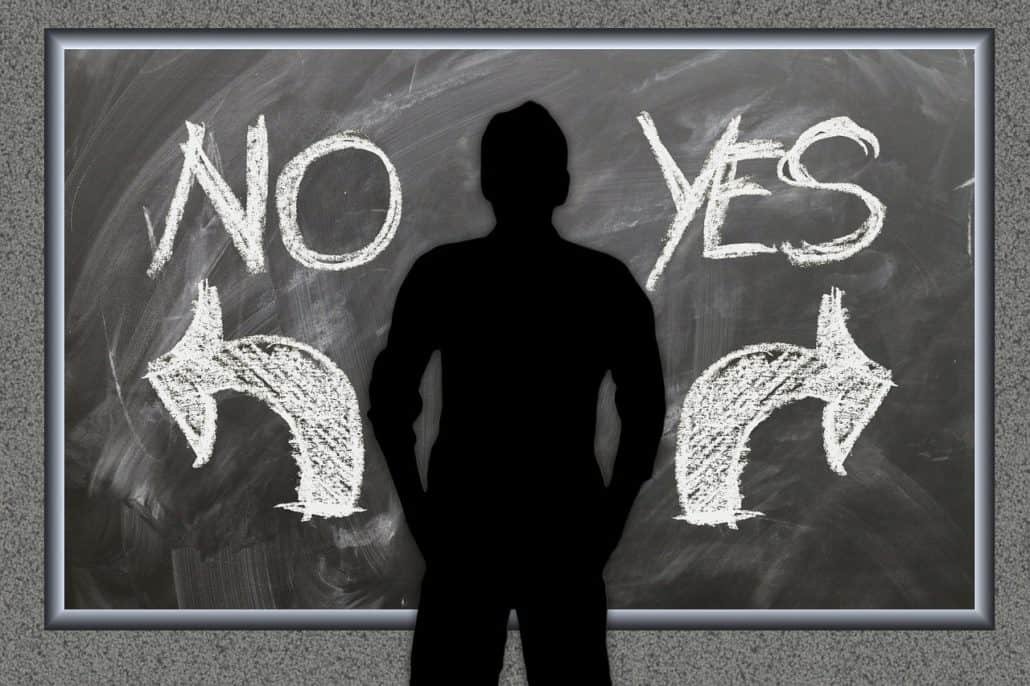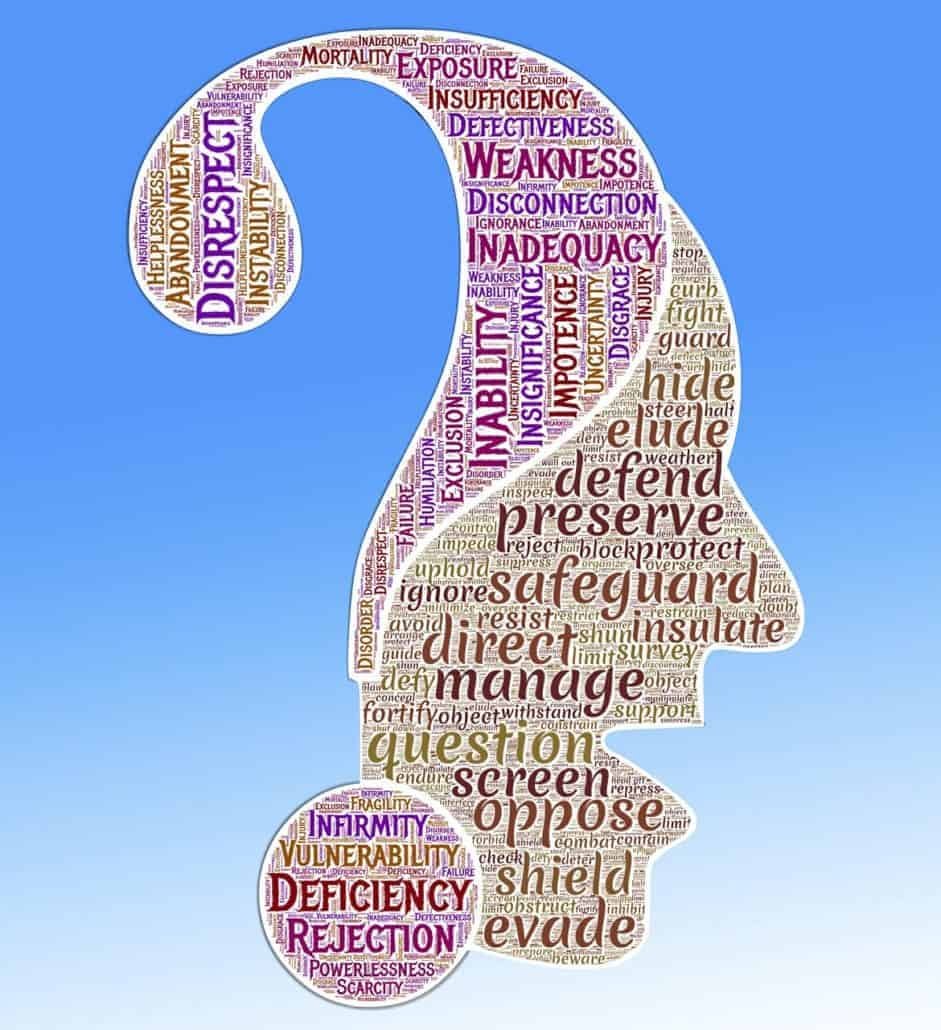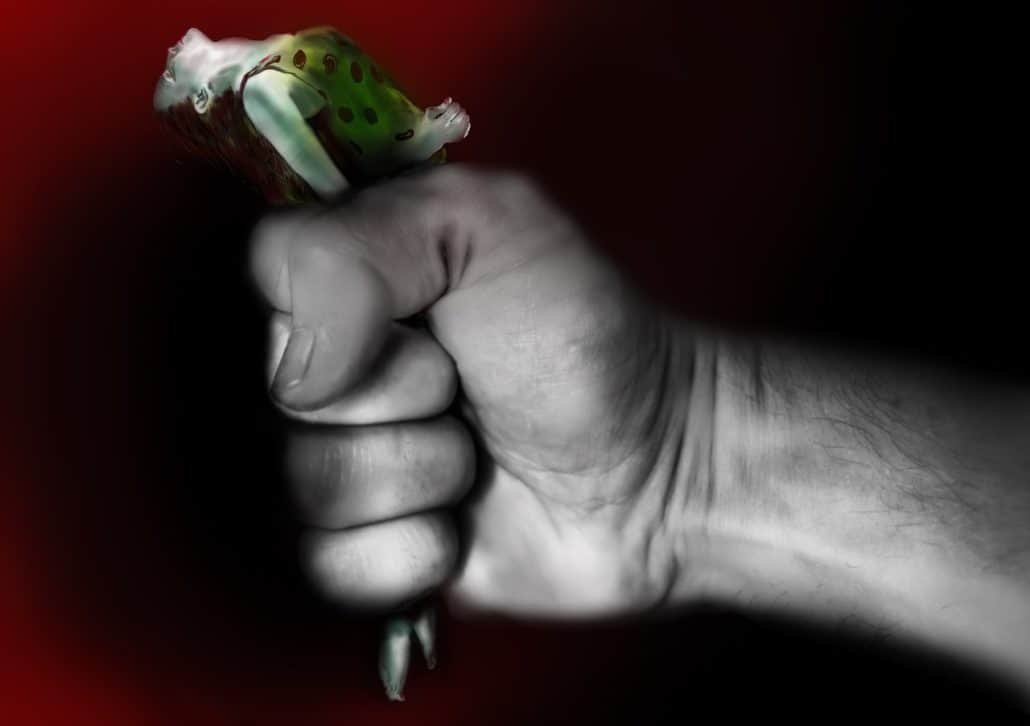We live in a world where it’s becoming easier and easier to be really negative about things AND feel miserable as a result of it. In fact, it’s so easy now, that even when we have much to be thankful for and positive about, we still tend to drift towards the negative. But what if you realised today that 90% of the time you don’t have to feel negative, but could create and experience a life filled with optimism, hope, and excitement instead? Let’s look at 8 mental habits that will make you miserable, and what you can do about them.
A quote that really spoke to me when I heard it was:
It’s not what you look at that matters, but what you see.
Henry David Thoreau
Think about that for a moment.
Every day, you and I look at many different things in our lives and the world.
The interesting thing is that every person sees something else even though they might be looking at the same things.
One person looks at climate change and sees disaster.
Another looks at climate change and sees an opportunity to improve the world and save it FROM disaster.
An idea that I struggled with for a long time, but have finally come to believe is, the fact that the world doesn’t make me miserable – I make myself miserable.
Maybe your first reaction is the same as one was when I had this the first time.
But think about it for a moment.
Most things in your life are the result of choices.
Teachers of the “Law of Attraction” actually go one step further in saying that everything in your life has been drawn into your life as a result of your “inner world,” i.e. the thoughts and feelings you harbour most of the time.
Whatever we “hold” in the form of thoughts and feelings inside ourselves for long enough, eventually manifests in reality.
Now, I appreciate that many people resist this idea and don’t believe in it, and that’s fair.
But, I do believe there is some truth in the statement that most of the results in my life are the direct outflow of the path I chose to be or stay on.
Furthermore, most things in my life are definitely because of certain consistent actions, called habits.
My body and physique, bank account, and happiness are all the direct results of my daily habits.
Therefore, what I choose to think and feel and consequently do consistently in my life, all work together to create some form of reality that I can then either feel positive or negative about.
The key to this idea is the fact that if I want to change it, I need to do something about it.
I can look towards others for solutions or better outcomes, but at the end of the day, it is up to ME.
Even when certain things are not my fault per se (even though the teachers of the law of attraction will differ), it’s still 100% of my responsibility to respond to it in the most empowering way that will serve the outcomes in my life.
The reality is, for most people (privileged people anyway), it’s not easy to be miserable unless you consistently do things to create misery.
Now, at this point you can most likely come up with many different scenarios in your life, pointing out all the wrongdoings of others and how that affected you.
And I can’t deny that the world around us influences us hugely.
But, if your husband left you suddenly, you must consider how your own thoughts, feelings and actions over time contributed to that.
If your finances are not where you wanted to be, it’s easy to blame the government and its immigration policies.
But, it’s equally important to consider how your thoughts (way of thinking), feelings and actions over time contributed to your current financial situation.
I completely appreciate that this is not easy when we look in the mirror-like, but it is absolutely necessary if we are to heal or restore our lives.
It’s definitely necessary if we want to continue living in a world that’s making it so easy to feel miserable all the time.
What you and I think, feel, and do consistently – we can call them “habits of thought, feeling and action” – make all the difference in the quality of our lives in the long run.
The world is a tough place, and you and I get to choose what we look at as well as what we choose to see.
This reality ultimately makes a difference in the quality of life between two different people.
That’s how you end up meeting someone living in challenging circumstances who are still living an impactful and inspiring life, versus someone who has everything going for them yet is addicted to drugs.
I’ve also learned that of the three mentioned above, mental habits are perhaps the most powerful in creating our quality of life.
Simply because they are so pervasive and in a way the catalyst for all other habits (feelings and actions).
So if I had to advise someone on what to do to start changing their feelings of misery or unhappiness, it would be this:
Change your mental habits
And there are eight (8) specific mental habits that will make you miserable very quickly if you continue to host them.
You have to get rid of them as quickly as you can. But first, you need to know what they are.
I will show you how you can identify and change these habits that are making you unhappy.
Avoid these mental habits to increase your levels of happiness
Making assumptions.
Another name for this is “fortune-telling.”
The reality is that it’s too easy to assume you already know something you don’t.
Most people don’t know what will happen.
Assumptions destroy relationships and prevent you from taking action.
And in the age of digital communication, making the wrong assumptions has become so easy.
How many times haven’t you received a text or email and read it a certain way, only to find out later that that’s not what the sender meant at all?
And you felt stink because you completely misinterpreted it.
In short, you assumed you knew what he or she meant and it made you look stupid.
So, why assume anything?
Assumptions are like handling dog shit.
Excuse the crude analogy, but it’s true.
If you’re not careful, one mistake and you end up with a mess on your hands.
Why assume you won’t get that great job?
Why assume she won’t say “yes?”
Why assume you won’t get the deal?
Why assume you understand what he or she meant?
Why assume you know it all?
Why assume you don’t have to ask again?
The list goes on and on.
The best rule of thumb is to simply can this mental habit, and go after the things you want with everything you’ve got and prove it to yourself.
Get all the information you need and do your best. Assumptions are frequently wrong.
Seeking approval from others.
This is another silly mental habit.
Let me share with you a life-changing truth,
No matter what you do or how good you are, some people will always think you’re a hero and others will think you’re a bum.
That’s just called life.
A healthy, mature, and responsible adult makes choices and takes actions that they believe are correct.
They don’t base the actions on a need to be accepted or approved by others.
Something my dad told me many years ago that really helped me with this, was when he said:
“Everyone’s shit stinks.”
Again, apologies for the language, but he makes a good point, doesn’t he!?
We put people on pedestals for some reason or another and will try to move heaven and earth to please them.
But why?
Why is it so important to get their approval?

The fact is, it doesn’t matter if your neighbours, brother-in-law, or your mom approves.
Making others happy only leads to misery.
So again, do away with this mental habit and you’ll almost instantly feel better about life in what you’re busy with at the moment.
Comparing yourself to others.
If you really want to feel humbled, do yourself a favour and go search on YouTube for something like “talented kids,” or “The X Factor,” or “America’s got talent,” etc.
I want you to realise how silly it is to compare yourself to others.
The truth is,
There’s always someone with a nicer car, a more attractive spouse, a better body, a bigger paycheck, or more developed talents.
Sadly, however, so many of us build our lives around comparing ourselves to others.
We are in constant pursuit of being better than someone else.
I know I used to do this for a long time with a friend of mine.
I constantly tried to get an edge on him, only to be met with disappointment when I couldn’t live up to my own stupid expectations.
What a waste of time.
Life becomes a lot simpler and enjoyable when you only compare yourself to yourself.
The challenge is not to be better than someone else, but to be better than your former self.
And if your best self is good enough to get first prize, then great. If it’s not, then great.
Then at least you know you can still make improvements.
I believe if you’re making progress over time, you’re winning the game of life.
If you’re losing ground, that’s a sign that you’re losing and you need to make some changes.
But you’re in competition with yourself, no one else.

Take Usain Bolt as an example.
The man had no equal in the world of track and field sprints.
I mean, some people even call them a “freak of nature.”
How depressed do you think he would have been if he had this mental habit of comparing himself with others.
There was (is) no one he could compare himself with. He was (is) that good.
But, that’s not what he did.
We know that he kept competing against himself.
He wanted to be a legend.
The best there’s ever been.
Now he is.
You can’t do that if you’re constantly concerned or busy with comparing yourself with others.
It takes away your focus on being the best you can be.
That’s why I have huge respect for Paralympic athletes or master athletes.
These are people that are not concerned with comparing themselves to others, even though there are competing.
Why?
Because they are in competition with themselves and their “limitations” and “physical challenges.”
And that’s why most people celebrate them because we recognise the beauty of competing against ourselves and striving to be the best we can be.
Stop comparing yourself to others and start pursuing the best YOU instead.
Procrastination.
Time is the great equalizer.
Everyone has 24 hours in a day to achieve the goals they want to achieve.
Richard Branson doesn’t have more hours in the day than you and me.
Neither does Mark Zach Zuckerberg, the late Steve Jobs, Bill Gates, Warren Buffett, Tony Robbins, Oprah Winfrey, Michael Phelps, Usain Bolt, Brad Pitt, Will Smith, Frank Kern, Brendon Burchard, etc.
You might not have been born into a wealthy family, possess a 150 IQ, look like a movie star, or be a world-class athlete.
But everyone has 24 hours available each day to work towards their dreams.
How you use that time determines your outcomes.
Wasting time creates stress and drama that no one needs.
And if you procrastinate frequently, your life is less than it could be.
Now, why do people typically procrastinate?
One word: FEAR.
And fear is another mental habit.
We literally get in the habit of being scared of going after the things we want.
We make up stories.
We tell ourselves tales.
We come up with excuses.
We justify.
We stall in planning mode.
Whatever we can do to avoid taking action and moving towards a dream is.
Why?
Because we are scared we’ll fail.
And it is easier to not try and therefore not fail, than it is to try and fail.
Because that would mean we fell short for some reason or another, and very few people can handle that disappointment.
Harbouring this mental habit of fear will keep your dreams from showing up.
So get rid of it.
Indecisiveness.
Indecisiveness is the ultimate form of procrastination, but it’s still based on FEAR.
We rationalise that by doing nothing we can’t fail.
But, choosing to do nothing IS making a choice.
It’s a choice to remain stuck and allow life to pass you by.
If you’re stuck between a couple of options, just choose.
One choice will prove to be as good as another.
And if it’s not, who cares?
Make a new one.
Think about this, if you’ve done the work to narrow your options, the worst remaining option is much better than failing to make a choice.
Just realise that “indecisiveness” is also a mental habit.
The more you do it the better you get at it.
Some people never make decisions, not because they don’t want to, but because they’ve gotten so good at never making decisions.
And they are paying for it with their dreams.
Only being satisfied with perfection.
Again, this mental habit is super silly.
When you’re a perfectionist, nothing is ever good enough.
The ironic truth is, however, that NOTHING is ever perfect.
There are always ways to improve anything.
Pursuing perfection is, therefore, the perfect recipe for misery.
So don’t.
Instead, give yourself plenty of ways to be happy, not just one.
Let good enough be good enough.
Determine how well something needs to be done and make it happen.
Aim for “good enough” to get started.
The key is moving forward.
It’s not about doing as little as possible.
It’s about doing as little as possible to get the ball rolling.
You can always improve and fine-tune and “perfect” it later on.
Underestimating yourself.
I’m sure most people take a hit psychologically after some form of disappointment.
After a negative outcome, it’s easy to start believing you’re less capable than you really are.
And the natural result is to then lower your expectations in the future.
The only problem with that approach is that we tend to live up to expectations.
When you expect less of yourself, you start living a life that’s less than it could be.
Harbouring small self-belief only results in a small life.
Therefore, instead of focusing on recent disappointments, rather focus on your past successes and remind yourself of how capable you can be when you’re at your best.
As I said in yesterday’s post, learning to walk and talk are more challenging than anything else you’ll ever accomplish.
The hard part is over.
Everything else is a walk in the park.
Beating yourself up.
This mental habit also tends to be a natural outflow of the previous one.
When we underachieve or experience disappointment, not only does our self-belief take a hit, but we also tend to beat ourselves up over it.
The truth is, mistakes are part of the game.
It’s part of life.
So rather than use them to beat yourself up, learn from them and apply the information you’ve gained instead.
How would your life be if you never made the same mistake twice?
You might think you deserved to be punished, but how is that helpful?
Going through life exercising this mental habit of beating yourself up, is harmful and limiting to all your dreams and goals.
You might feel some perverse satisfaction from beating yourself up, but it’s an illusion.
Beating yourself up only does one thing – it hurts you.
It doesn’t improve you.
It doesn’t improve your results.
In fact, it does quite the opposite.
It restricts and hurt you long-term.
So, if you’re doing this right now, I would encourage you to stop it.
Focus on your past successes and consider how you can use the lessons from those to succeed now.
Last thoughts
There’s good news if you’re miserable.
You can blame yourself, which means that you can fix it.
I know this is a weird way of looking at things but it’s helpful.
Poor mental habits lead to misery.
That’s a fact.
But, a few simple changes can positively affect your happiness long-term success.
I challenge you to use the information in this article to determine how your mental habits are impacting your mood and success.
Once you have some clarity on that, start making the necessary changes to enjoy a higher level of happiness.
If you have any comments or questions, please leave them below, and I will respond to them personally.
Otherwise, catch you next time.
Live and love fully!










